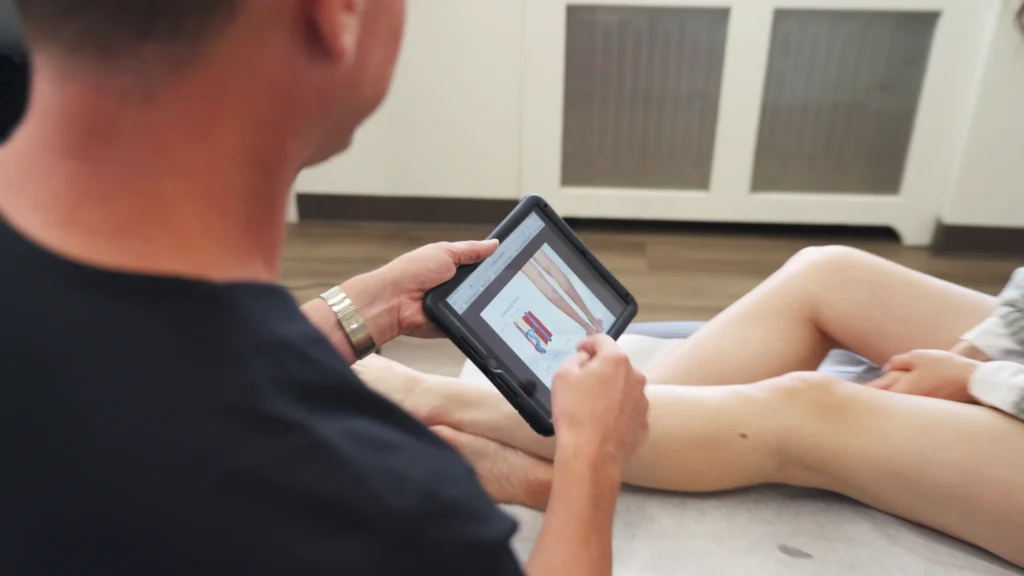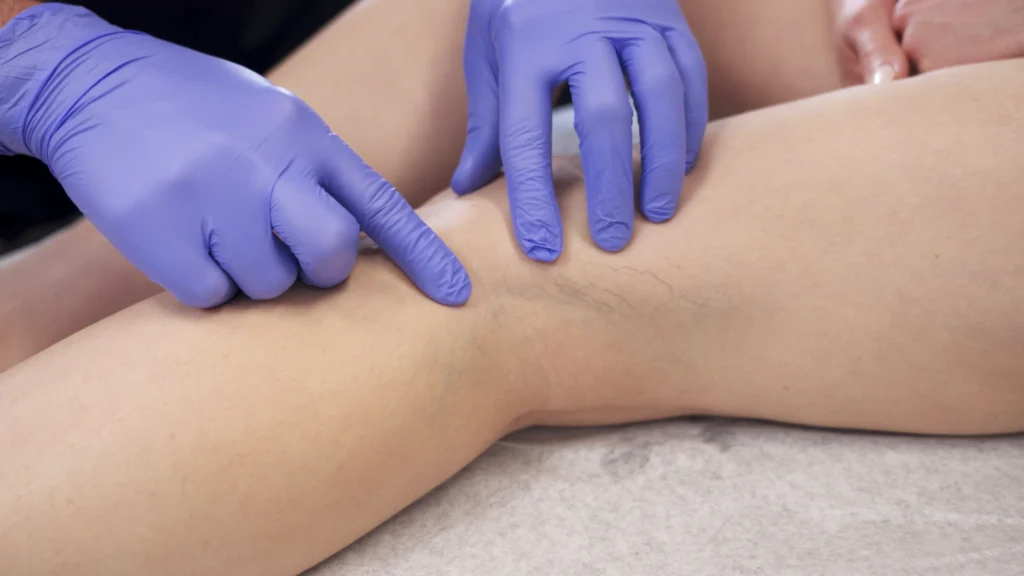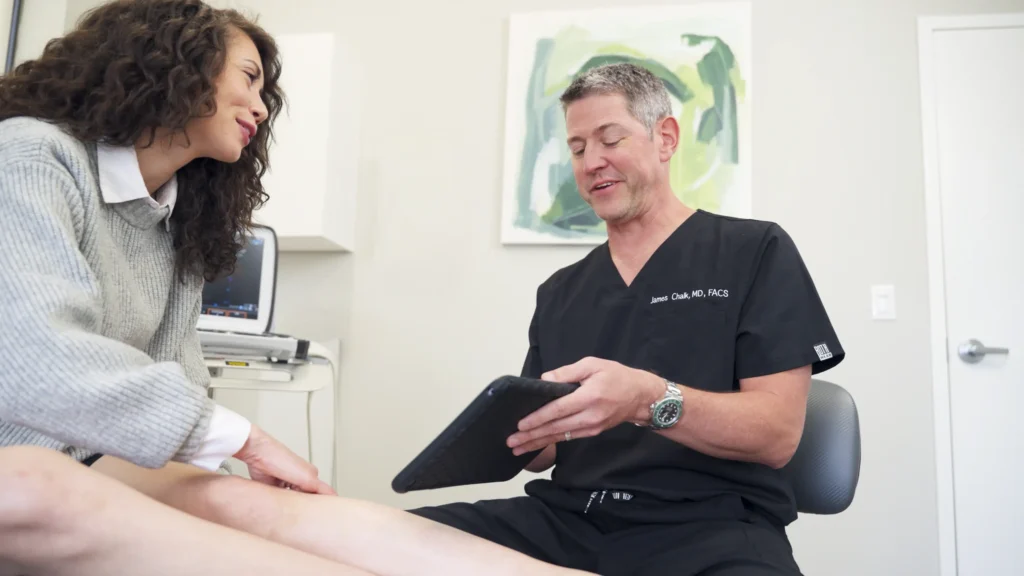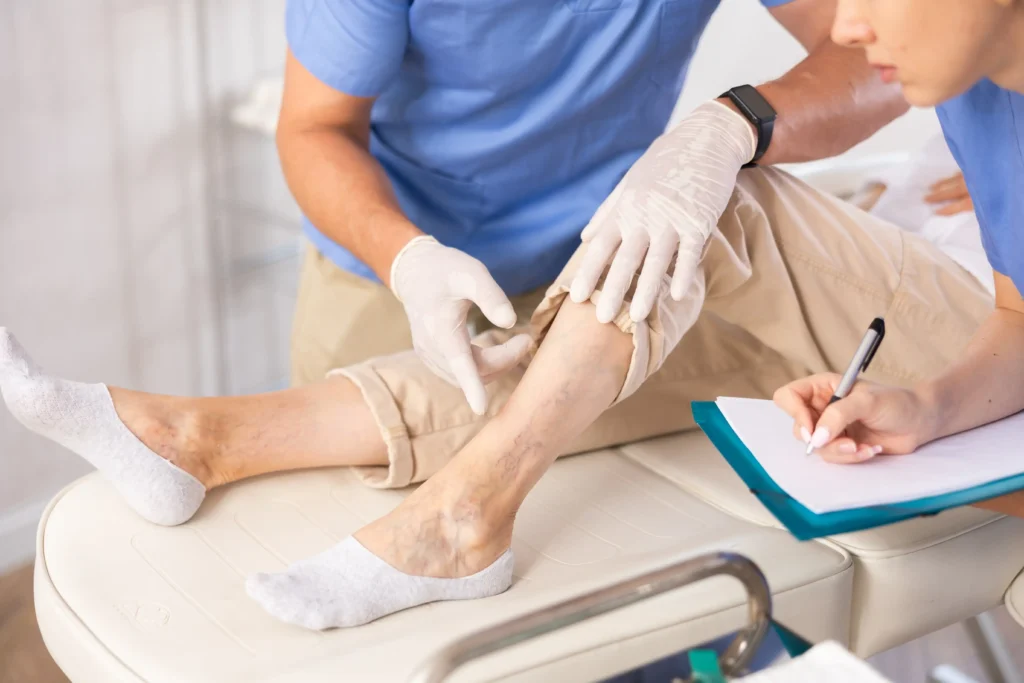How Hormones Affect Vein Health in Women (And Even Men)
Hormones and Their Influence
Hormones are chemical messengers that play vital roles in regulating many bodily functions, including the cardiovascular system. Two hormones, estrogen and progesterone, are particularly important in the context of vein health.
Estrogen
Estrogen is a key hormone in women’s health, influencing everything from reproductive functions to bone density. It plays a crucial role in maintaining healthy veins. Generally, estrogen helps to keep vein walls strong and elastic, promoting proper blood flow. However, fluctuations in estrogen levels, such as those experienced during the menstrual cycle, pregnancy, and menopause, can weaken vein walls, making them more susceptible to varicose veins.
Progesterone
Progesterone works alongside estrogen to regulate the menstrual cycle and support pregnancy. It has a more complex relationship with vein health. Elevated levels of progesterone can cause the walls of veins to relax, potentially leading to varicose veins, especially when combined with other factors like increased blood volume during pregnancy.
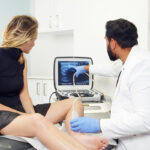
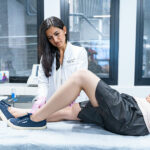
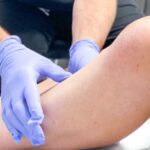
Menstrual Cycle and Vein Health
The menstrual cycle brings about regular hormonal changes that can affect vein health. During certain phases of the cycle, estrogen and progesterone levels fluctuate, which can cause temporary vein issues such as leg swelling or mild varicose veins. These symptoms are usually temporary and tend to subside as hormone levels stabilize. While these changes are generally not a cause for concern, they highlight the sensitivity of vein health to hormonal fluctuations.
Pregnancy and Vein Health
Pregnancy is a period of significant hormonal shifts and physical changes that can place a strain on veins. Increased blood volume and elevated levels of estrogen and progesterone can lead to the development of varicose and spider veins. The growing uterus also puts pressure on the veins in the pelvic area, which can further impede blood flow from the legs back to the heart.
Risk Factors During Pregnancy
Certain factors can increase the risk of developing vein problems during pregnancy, including:
- Age: Older women are more likely to develop varicose veins during pregnancy.
- Family History: A family history of varicose veins can increase the likelihood of experiencing vein issues.
Multiple Pregnancies: Having multiple pregnancies increases the cumulative risk of developing vein problems.
Menopause and Vein Health
Menopause marks a significant decline in estrogen production, which can adversely affect vein health. The reduction in estrogen levels can lead to weakened vein walls, increasing the likelihood of developing varicose and spider veins. Additionally, hormonal changes during menopause can contribute to weight gain and reduced physical activity, both of which can negatively impact vein health.
Managing Vein Health Throughout Life
Maintaining healthy veins involves adopting lifestyle practices that benefit both vein health and hormonal well-being. Here are some strategies to consider:
- Maintaining a Healthy Weight: Excess weight puts additional pressure on your veins, particularly those in your legs. By maintaining a healthy weight, you can reduce the strain on your veins and lower the risk of developing varicose veins.
- Regular Exercise: Physical activity is essential for promoting good circulation and preventing vein problems. Exercises that focus on the legs, such as walking, jogging, and cycling, are particularly beneficial for vein health.
- Eating a Balanced Diet: A diet rich in fruits, vegetables, whole grains, and lean proteins supports overall health and can help maintain strong vein walls. Foods high in fiber can prevent constipation, which reduces pressure on the veins.
- Wearing Compression Stockings: Compression stockings provide added support to your veins, improving blood flow and reducing the risk of varicose veins. It’s important to consult a vein doctor to determine if compression stockings are right for you and to ensure you get the correct fit.
Vein Treatment Clinic: Your Partner in Vein Care
At Vein Treatment Clinic, we understand the unique challenges that women face when it comes to vein health. Our team of board-certified vein doctors specializes in diagnosing and treating vein problems with state-of-the-art, minimally invasive techniques. We use advanced diagnostic tools, such as duplex ultrasound, to assess vein health and develop personalized treatments.
Expertise in Minimally Invasive Treatments
We offer a range of minimally invasive treatments for varicose and spider veins, including:
- Sclerotherapy: Sclerotherapy is a widely used procedure for both varicose and spider veins. It involves injecting a solution into the affected veins, causing them to collapse and eventually be reabsorbed by the body. This treatment is particularly effective for smaller veins and can be performed in the office with minimal discomfort. Multiple sessions may be required for optimal results, but patients can usually resume normal activities immediately after the procedure.
- Endovenous Laser Treatment (EVLT): EVLT is a modern, minimally invasive treatment for larger varicose veins. A laser fiber is inserted into the vein through a small incision and laser energy is delivered to heat and close the vein. This procedure effectively reroutes blood flow to healthier veins and provides quick relief from symptoms. EVLT is performed under local anesthesia and has a short recovery time.
- Radiofrequency Ablation (RFA): Similar to EVLT, RFA uses radiofrequency energy to heat and close off problematic veins. A catheter is inserted into the vein, and controlled heat is applied to seal the vein shut. RFA is effective for treating larger varicose veins and is performed under local anesthesia. The procedure is minimally invasive, with patients typically experiencing minimal discomfort and a quick return to normal activities.
- VenaSeal Closure System: VenaSeal uses a medical adhesive to seal the affected vein. This involves injecting a specially formulated adhesive into the vein, which quickly hardens and closes the vein. Blood is then rerouted to healthier veins, reducing the appearance of varicose veins and alleviating symptoms. VenaSeal is a quick and virtually painless procedure that does not require tumescent anesthesia or post-procedure compression stockings.
- Foam Sclerotherapy: The sclerosant foam is injected into the affected veins, causing them to collapse and eventually be absorbed by the body. This method is particularly effective for treating veins that are difficult to reach with other methods and can be used in combination with other treatments for comprehensive vein care. The procedure is minimally invasive, with little downtime, allowing patients to return to their daily routines quickly.
- Ambulatory Phlebectomy: Ambulatory phlebectomy is a minimally invasive surgical technique for removing superficial varicose veins. The procedure involves making small incisions in the skin and using specialized instruments to extract the problematic veins. This technique is highly effective for removing larger, bulging veins and provides immediate cosmetic improvement.
Take Charge of Your Vein Health
It’s essential to be proactive about vein health and seek professional help when needed. Vein Treatment Clinic offers free consultations to evaluate your vein health and discuss potential treatment options. Our team is dedicated to providing personalized care that addresses your specific concerns and helps you achieve the best possible outcomes.
Hormonal changes are a natural part of life for women, but they can significantly impact vein health. By understanding how hormones like estrogen and progesterone affect your veins and adopting healthy lifestyle practices, you can effectively manage vein health throughout different life stages. Vein Treatment Clinic is here to support you with expert care and minimally invasive treatments tailored to your needs. Schedule a consultation with our vein doctors today.



